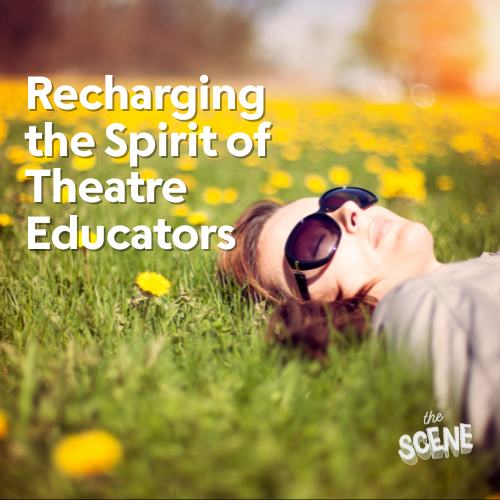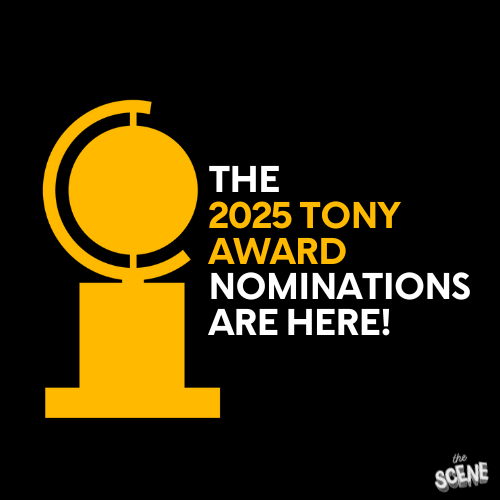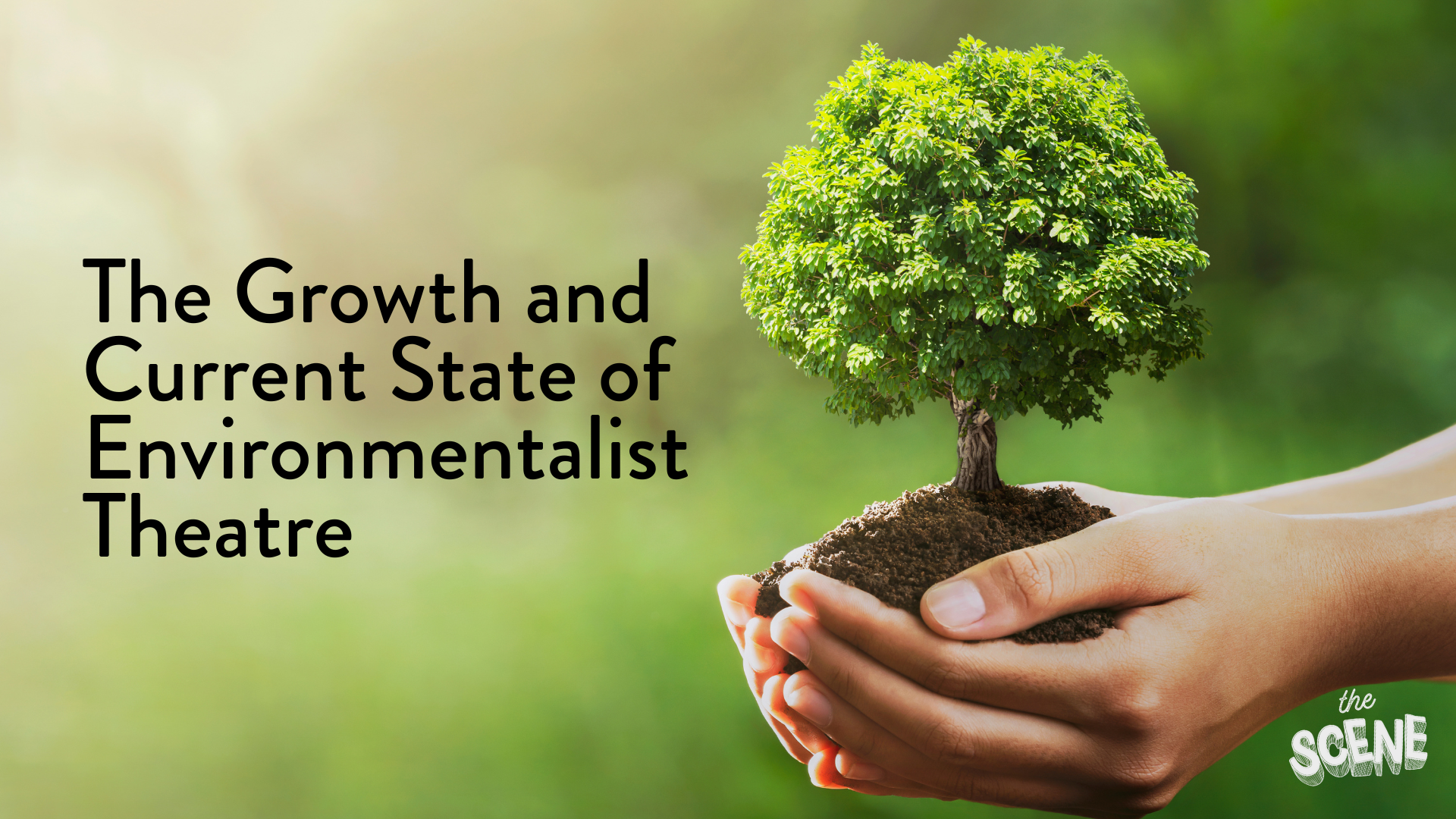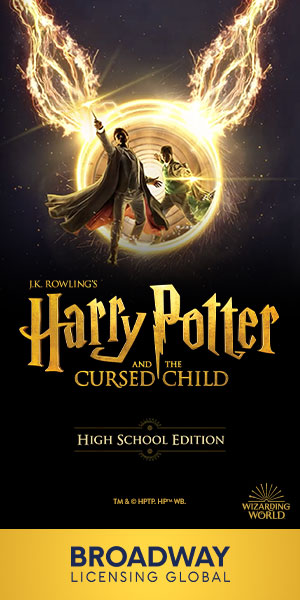by Justin Borak, The Scene
Earth Day is a celebration of environmental protection and a day when we are encouraged to demonstrate support and advocate for the needs of our planet. A subset of theatre has been doing this for years, so there might never be a better week to dive deeply into Environmentalist Theatre and look into current examples in the canon you need to read.
Theatre, with its history of reflecting social change and sparking dialogue, is uniquely positioned to engage with ecological concerns. In recent years, the concept of eco-friendly theatre has emerged as both a creative practice and a moral imperative, seeking to reduce the carbon footprint of productions while also reimagining the way stories about the environment are told.
Eco-friendly theatre started to take shape in the late 20th century, as people became more aware of the environmental problems caused by industrialization and pollution. Around this time, theatre-makers began to think about how their work could both reflect these concerns and reduce its own environmental impact. Inspired by the growing environmental movement and influential books like Rachel Carson’s Silent Spring, some artists started shifting their focus, not just telling stories about nature or climate change, but also changing how productions were made. This meant reusing set materials, cutting down on waste, and performing in outdoor or low-energy spaces. These early efforts began a significant move toward making theatre more sustainable in both message and practice.
Today, theatre-makers worldwide attempt to do their part to help the problem. Whether it’s commissioning and developing climate-conscious theatre like Chantal Bilodeau’s The Arctic Cycle, and Duncan Macmillan and Chris Rapley’s 2071 or it’s using eco-friendly methods of creating theatre like repurposing past sets for scenic design, using digital and online technology to supplement for theatrical devices that would use everyday, non-ecological supplies, or even just informing audiences of the ecological or land problems in theatres through talkbacks and emphasizing traditional environmental knowledge and land rights in your program.
Now, if you are wondering what you can do to help, I wanted to do what I do best and recommend some plays that are brilliant environmentalist and eco-friendly pieces that would help promote the message of eco-friendly theatre.
- The Apiary by Kate Douglas: Set 22 years in the future, the play follows a group of researchers who quickly shift their focus in the lab to reviving the endangered honey bee population after realizing their need in the medical field. Douglas uses this story and the constantly dropping honey bee population to explore themes of ecological restoration and the importance of biodiversity.
- Lungs by Duncan Macmillan: This play follows a couple grappling with the decision to have a child in a world facing climate change and overpopulation. Through sharp, witty dialogue, it delves into personal responsibility and the environmental impact of our choices.
- Brown Pelican by George Sklar: Focusing on a zoo curator’s efforts to protect endangered species, this drama intertwines environmental activism with personal trials, highlighting the challenges faced by those fighting for conservation.
- Treefall by Henry Murray: In a world where trees are dying and sunlight is lethal, three teenagers navigate survival and identity. This post-apocalyptic tale examines the consequences of environmental neglect and the resilience of human connection.
This week, I was lucky enough to interview Kate Douglas for the season premiere of The Scene Podcast and talk at length about her love and care for environmentalist theatre. We talked about everything from her off-Broadway hit, The Apiary, to her brilliant immersive YA experience Middlemist Red that explores the story of a lost flower in a botanical garden through a site-specific analog mystery story for kids (please produce this, you can find it on her website and I desperately want to see this produced).
Other than being the host of The Scene Podcast, I’m also a playwright, and my first piece that was ever published was Community Garden in the Playscripts catalog. The vignette play follows the community of people in Uptown, Chicago, living their lives and finding new relationships in their local community garden. Other than exploring personal relationships, the play was written to teach the younger high school audiences and casts about environmentalism and how to have a green thumb early in life. In the front of the play, I ask each cast to do something together, as a community, that will make their production or their community a bit eco-friendlier. This has resulted in productions repurposing their sets, building gardens outside the theatre, and even taking a cast-bonding trip to a local community garden.
It’s up to each and every one of us to make an impact on our planet, and one thing we can use to make that difference is our theatre community. Read environmentalist theatre, find eco-friendly ways to produce your productions, and develop work that promotes the advocacy of making our planet have a little more “good air”.
Justin’s interview with playwright Kate Douglas is available now! You can listen to The Scene Podcast on Apple, Spotify, Goodpods, Amazon Music, and YouTube.









